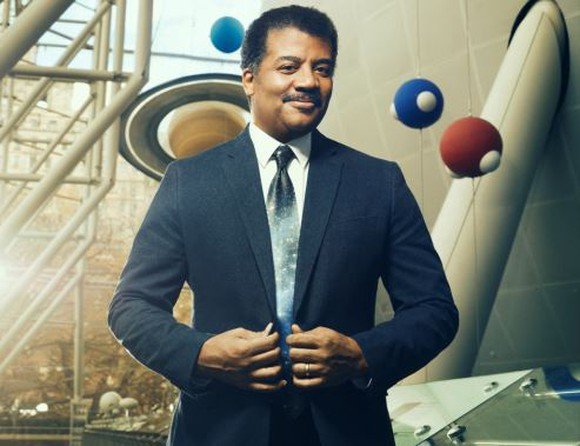
From The Motley Fool
A Harvard graduate, with a doctorate from Columbia and a post-doc from Princeton, Hayden Planetarium director Neil deGrasse Tyson is a certified smart guy. So when I heard Dr. Tyson had a new book coming out, Astrophysics for People in a Hurry, I ran out to pick up a copy, thinking there might be some good information in there for investors looking to profit from the surging space industry in America.Read the rest here: https://www.fool.com/investing/2017/05/20/neil-degrasse-tyson-talks-astrophysics-space-inves.aspxTurns out, I wasn't alone. Astrophysics for People in a Hurry is already a New York Times best-seller, and the No. 1 best-selling book on Amazon.com.
And now I see why.
After reading his book, I called up Tyson to see if he'd be willing to expand a bit on some of the ideas related to the business of space exploration, and how individual investors should be thinking about the big issues of our time: Elon Musk's planned Mars mission, the Trump administration's cuts in NASA funding, and asteroid mining, among others.
Here are a few insights into these matters, courtesy of America's favorite astrophysicist.
Thoughts on Mars
Tyson recently joked on Reddit that before going to Mars himself, he'd want to see SpaceX CEO Elon Musk send his own mother there -- and bring her back alive. And so I asked him: Exactly what objections does he have to the idea of Musk undertaking a manned mission to Mars? As it turned out, his concerns were primarily of the economic variety."History tells me there is no business model for" a private individual exploring a new world without government backing, explains Tyson, because "there are too many unknowns." Citing the original example of New World colonization, Tyson points out that "the British East India Company didn't discover America. Columbus did."
For the East India Company to try to explore the New World before Columbus blazed the trail, says Tyson, "would have been an unwise investment," because they didn't know "where the trade winds are, and where are the hostiles and where are the friendlies." It was only after a government had provided the financing for Columbus' expedition, and he had returned with some hard facts on the New World, that private companies could develop a plan to profit from it. Tyson expects the colonization of Mars to follow a similar path.
Follow @contentjunkie to stay up to date on more great posts like this one.

